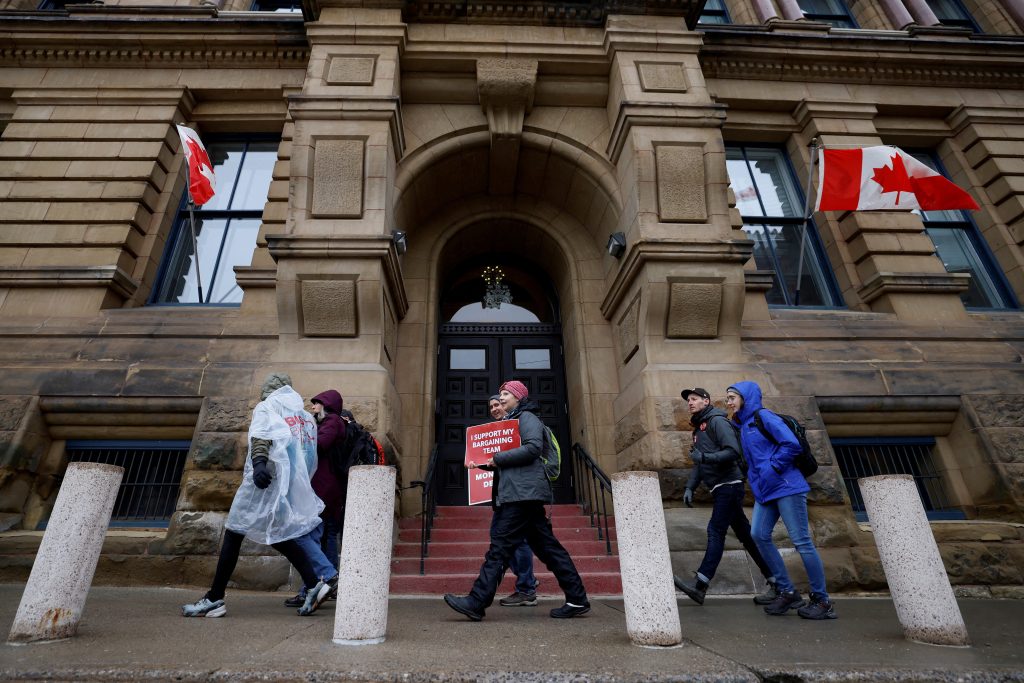
Canada’s largest public sector strike, which started on April 19, is approaching its third week, leaving thousands of people in immigration limbo. The strike has caused cancelled hearings and stalled applications, leaving many in a state of uncertainty. This situation could make it difficult for the country to compete for global talent as employers face a tight labor market.
Although wages are the primary sticking point for the 155,000 federal public servants who have gone on strike, the union is also calling for remote work to be included in its collective agreement. The strike has affected everyone from refugee claimants whose hearings are cancelled to sponsored relatives stuck in limbo, from migrant workers to foreign students, according to lawyers.
Canada has set a record-setting immigration target, hoping to bring in 500,000 new permanent residents a year by 2025 to help ease labour shortages in industries from construction to healthcare. However, with many applications stalled, some would-be newcomers are left waiting abroad, while others are left wondering whether their permit will expire. Some employers are also left without much-needed staff.
Immigration lawyer Ksenia Tchern has stated that her office is getting calls from worried clients who haven’t heard back. The delay caused by the strike comes as Canada’s immigration system is playing catch-up from pandemic delays. Canada recently held draws for thousands of permanent residents it may not have the capacity to process, which has left many clients in limbo.
Immigration, Refugees and Citizenship Minister (IRCC) Sean Fraser said last week that because of the strike, tens of thousands of files have not been processed that otherwise would have been. «The longer any work stoppage goes on, the more severe the impacts are going to be,» he told reporters.
The strike’s impacts on immigration services are not yet clear, and the magnitude of the backlog is still unknown. However, it is certain that the longer the strike goes on, the more severe the impacts will be. Lawyers have noted that an immigration system perceived to be dysfunctional could complicate efforts to attract talented immigrants, and give the country a black eye.